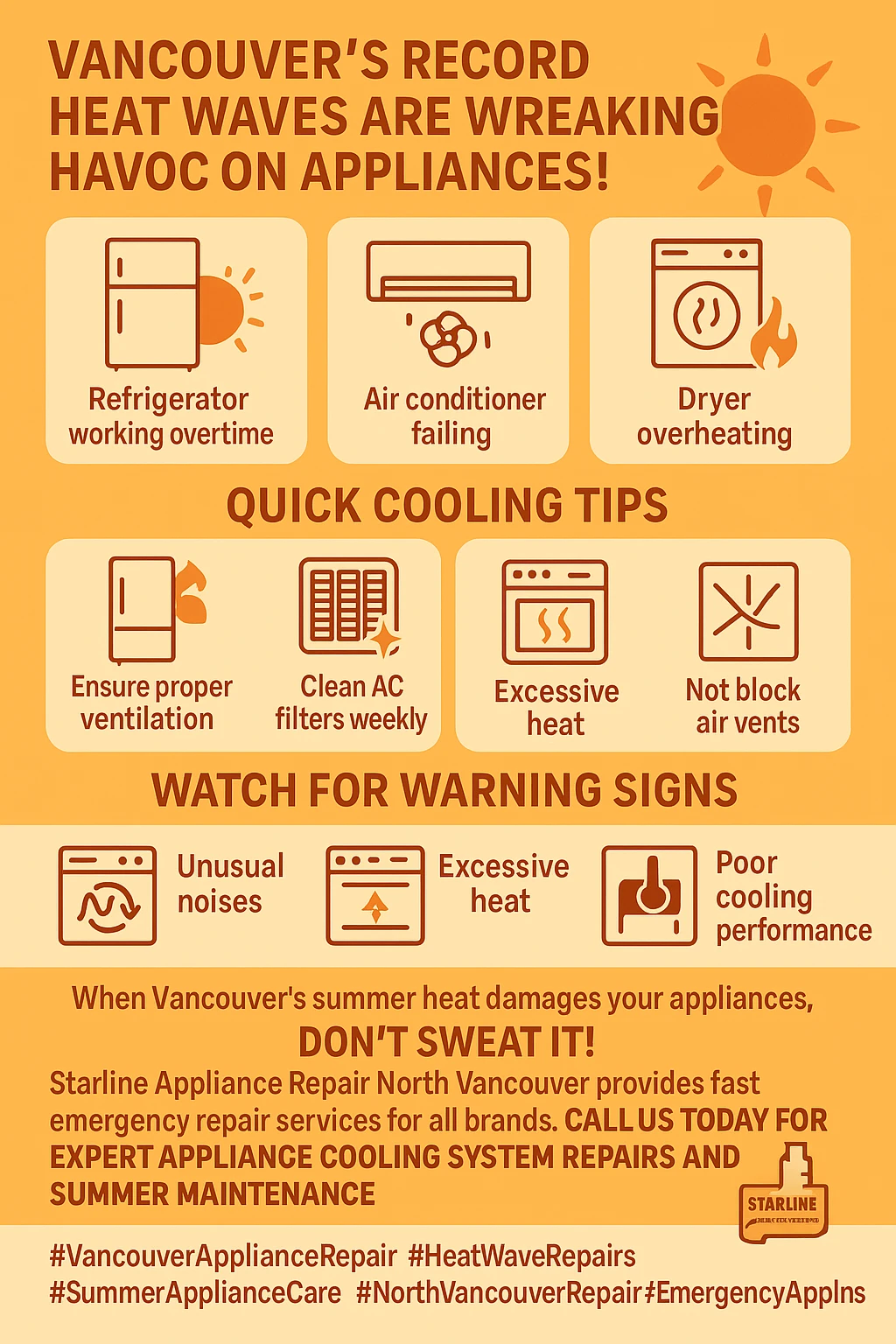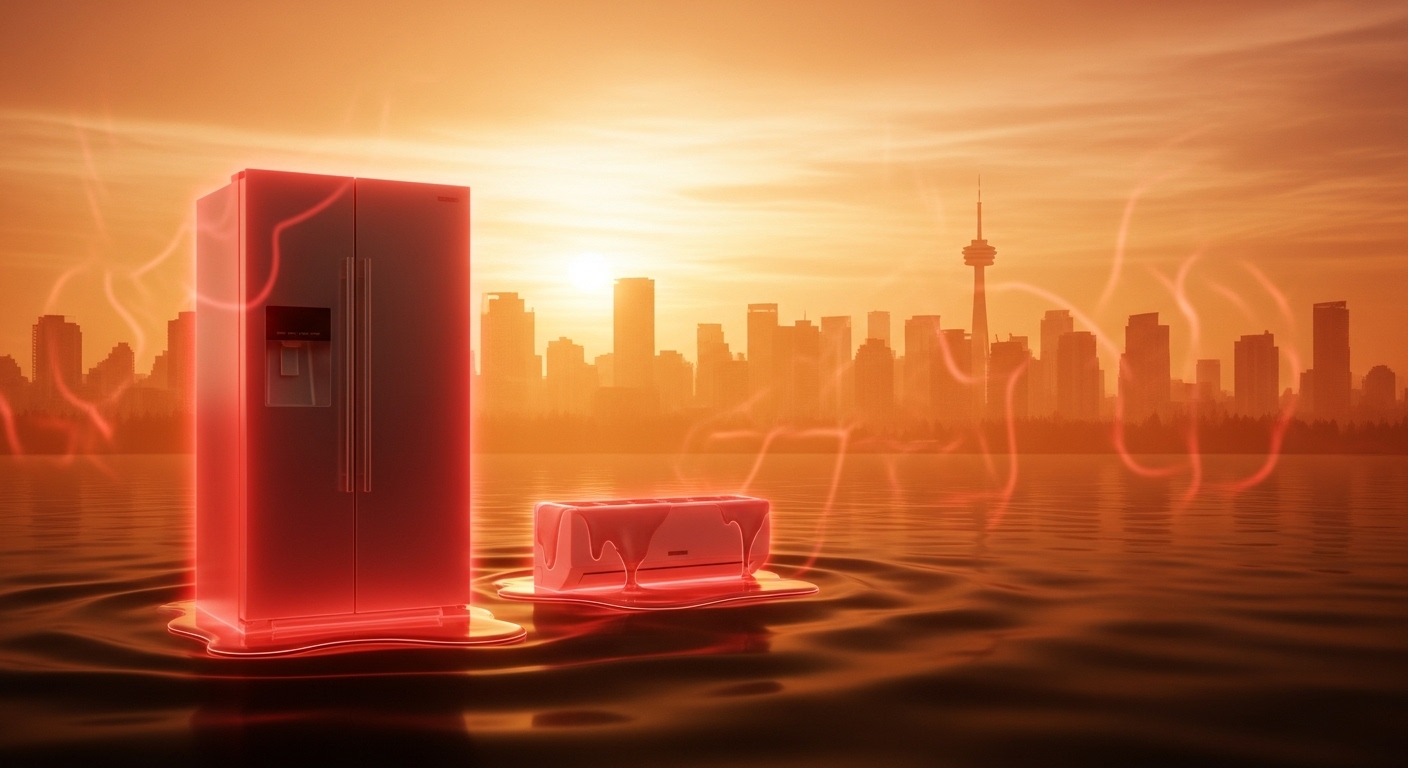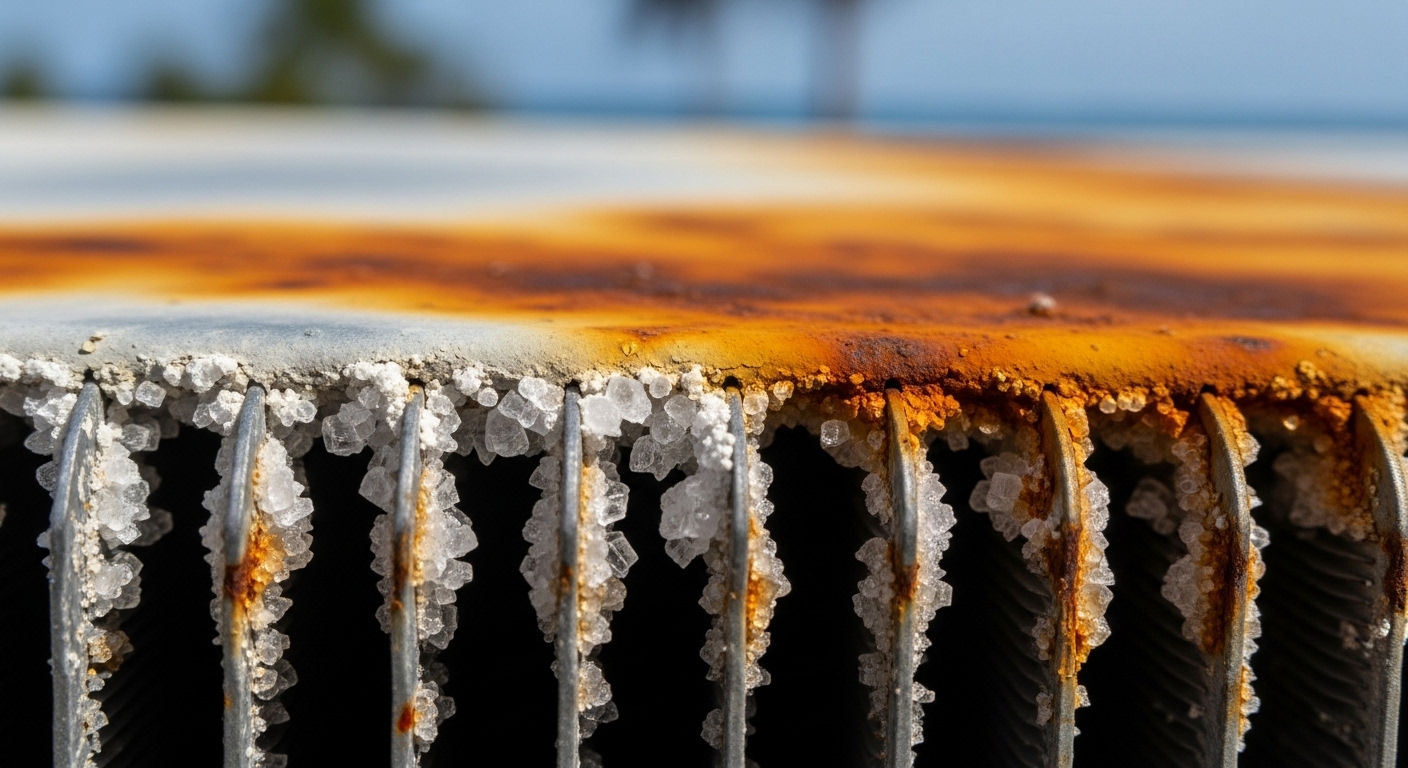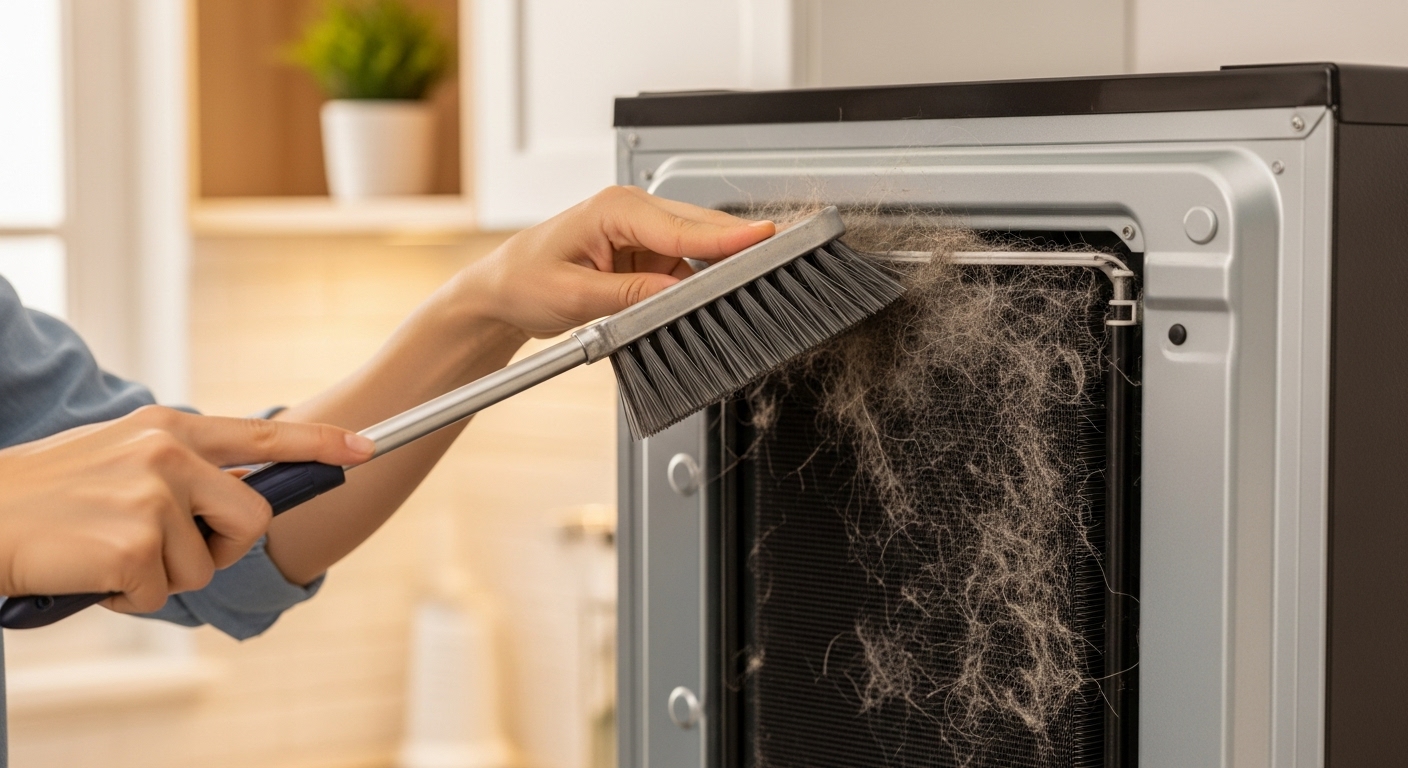How Vancouver’s Record-Breaking Heat Waves Are Causing Appliance Breakdowns: Emergency Cooling Tips and Overheating Prevention for Summer Appliance Protection
Feeling the heat from your fridge working overtime during Vancouver’s scorching summers? Discover how the city’s record-breaking temperatures are literally cooking your expensive appliances from the inside out, and learn the emergency protection strategies that could save you thousands in replacement costs.
Picture this: you wake up on another sweltering Vancouver morning to find your refrigerator struggling to keep your food cold, your air conditioner making weird grinding noises, and your dryer taking forever to finish a load. Sound familiar? You’re not alone in this nightmare. Vancouver’s unprecedented heat waves are creating a perfect storm of conditions that systematically destroy household appliances, leaving homeowners scrambling for emergency repairs when reliable cooling systems matter most.
What makes this crisis particularly brutal is Vancouver’s unique coastal location. The combination of record-breaking temperatures, crushing humidity, and salt-laden air creates an appliance death trap that goes way beyond what your equipment was designed to handle. We’re talking about fridges losing nearly half their cooling power, AC units shutting down when you need them most, and repair bills that can cost three times more than normal during peak heat events.
The reality check? Climate change has turned Vancouver into a appliance graveyard during summer months. Canada is warming twice as fast as the global average, and Vancouver just shattered temperature records that stood for nearly 50 years. Your appliances weren’t built for this new reality, but with the right strategies, you can protect your investment before disaster strikes.
Key Outtakes:
- Vancouver’s coastal climate reduces appliance lifespan by 20-30% compared to inland areas, with heat waves accelerating failures exponentially
- Refrigerator efficiency drops 45-50% when ambient temperatures reach 90°F, creating cascading system failures that can destroy expensive food stores
- Emergency appliance repairs during heat waves cost 200-300% more than normal service calls, with diagnostic fees alone reaching nearly $200
- Spring maintenance can prevent 80% of summer breakdowns and extend appliance life by up to 40%, making it one of the most valuable home investments
- Climate projections show Vancouver will experience four times more days above 30°C by mid-century, making heat protection strategies essential for long-term appliance investment protection

Vancouver’s Climate Crisis Creates Perfect Storm for Appliance Destruction

Metro Vancouver recently obliterated nearly 50-year temperature records, with Abbotsford hitting a scorching 35.8°C on August 11, 2024 – the hottest reading since 1977. But here’s what most homeowners don’t realize: these aren’t just uncomfortable numbers on a thermometer. They represent a fundamental shift in the operating environment that’s systematically destroying household appliances across the Lower Mainland.
Vancouver’s coastal location creates a uniquely toxic environment for appliances during heat waves. Salt air particles travel up to 25 kilometers inland from the coast, gradually accumulating on appliance components and kickstarting aggressive corrosion processes that accelerate during extreme heat. This isn’t your typical wear and tear – we’re talking about salt-accelerated degradation that can turn a 15-year appliance into scrap metal in just a few seasons.
The thermal cycling damage presents another layer of destruction that sets Vancouver apart from prairie cities with consistent temperatures. Unlike Edmonton or Calgary where appliances deal with steady cold, Vancouver’s constant freeze-thaw cycles stress components through repeated expansion and contraction cycles. During heat waves, this thermal cycling becomes extreme, causing seals to crack, connections to loosen, and electronic components to fail prematurely.
What makes this crisis particularly devastating is the speed of climate change acceleration. Canada is warming twice as fast as the global average, with climate projections showing that Vancouver will experience four times more days above 30°C by mid-century. Your current appliances weren’t designed for this new reality, and the gap between their operating parameters and actual conditions is widening every summer.
Emergency Refrigerator and Freezer Protection During Extreme Heat

When Vancouver temperatures soar, refrigerators become the first casualties in most homes, and the failure patterns are both predictable and devastating. Here’s the brutal reality: refrigerator efficiency plummets by 22-25% when ambient temperatures jump from 70°F to 80°F, and crashes by a catastrophic 45-50% when conditions reach 90°F. This isn’t just about higher energy bills – it’s about complete system breakdown when you need cooling most.
The compressor, essentially the heart of your refrigeration system, becomes a ticking time bomb during heat waves. Warning signs of impending failure include unusual warmth when you touch the unit, loud grinding or clicking noises, food spoiling faster than normal, and energy bills that spike dramatically. These symptoms create a dangerous feedback loop where an overworked compressor generates additional heat, accelerating its own destruction.
Emergency protection strategies can mean the difference between a functioning fridge and a $2,000 replacement bill. Start by ensuring several inches of clearance between your refrigerator’s back and the wall – this isn’t just good practice, it’s survival during heat waves. Dirty condenser coils force compressors to work 25% harder, which becomes catastrophic during extreme temperatures. Clean these coils immediately if you haven’t done so recently.
Here’s a counterintuitive tip that saves refrigerators: avoid cranking the temperature down to the coldest setting during heat waves. This paradoxically increases strain on the system and can cause drain lines to freeze, creating defrost issues that compound the problem. Instead, focus on reducing the heat load by keeping the unit full (thermal mass helps maintain temperature), avoiding frequent door openings, and ensuring door seals create a tight closure.
Professional intervention becomes necessary when refrigerators exhibit severe overheating symptoms like refrigerant leaks, completely blocked airflow systems, or compressors that shut down repeatedly. Understanding these warning signs helps you call for emergency service before total system failure, potentially saving hundreds in food spoilage costs and avoiding the premium pricing that kicks in once complete breakdown occurs.
Air Conditioning System Failures and Critical Heat Management

Most Vancouver air conditioning systems face a cruel irony during heat waves: they operate at only 50% efficiency precisely when cooling demand peaks at outside temperatures around 92°F. This efficiency nosedive occurs because AC units must overcome increasingly massive temperature differentials between indoor and outdoor environments, requiring exponentially more energy to achieve the same cooling effect that worked effortlessly during moderate weather.
The failure cascade typically starts with dirt and debris accumulation becoming critically problematic during heat stress. Contaminated condenser coils and evaporator systems simply cannot transfer heat effectively when ambient temperatures soar, while Vancouver’s salt-laden coastal air accelerates corrosion of electrical components. Overheated electrical elements cause capacitor failures and circuit board malfunctions, while rising system pressures increase refrigerant leak probability.
Immediate protection measures include aggressive filter maintenance – during heat waves, check and change filters weekly rather than monthly. Pre-season professional tune-ups become absolutely critical, as systems operating at marginal efficiency levels during normal conditions will fail catastrophically under heat stress. Strategic heat load reduction through keeping homes dark during peak hours, turning thermostats down at night for pre-cooling, and ensuring outdoor units receive maximum clearance becomes essential for system survival.
Advanced cooling assistance techniques can provide the edge needed for system survival. Gentle misting of outdoor condenser units helps reduce compressor pressure and improve efficiency, though this must be done carefully to avoid electrical hazards. Creating shade over outdoor units and ensuring proper drainage prevents heat buildup that overwhelms even well-maintained systems.
Critical warning signs demanding immediate attention include rapid cycling where compressors turn on and off repeatedly, unusual hissing or grinding sounds from system components, and sudden drops in cooling power despite normal thermostat readings. During extreme heat events, proactive system shutdown may be necessary to prevent catastrophic failures, with strategic fan usage and alternative cooling methods maintaining habitable conditions until professional services become available.
Kitchen Appliance Heat Damage and Emergency Protection
Kitchen appliances face compounding heat stress during Vancouver’s extreme temperature events, combining internal heat generation with external temperature loads in spaces that often lack adequate ventilation. Dishwashers, ovens, and even small countertop appliances contribute to a room’s ambient temperature, creating a feedback loop of escalating heat that pushes them beyond their operational limits.
Frequently Asked Questions About Appliance Overheating
Q: Why do my appliances seem to fail more in summer?
A: Higher ambient temperatures force appliances, especially those with cooling systems like refrigerators and air conditioners, to work much harder to maintain their set temperatures. This increased strain, combined with factors like humidity and dust, leads to a higher rate of component failure and overheating.
Q: Is it more expensive to get an appliance repaired during a heat wave?
A: Yes. Demand for appliance repair services skyrockets during heat waves, leading to emergency service fees, longer wait times, and premium pricing. Diagnostic fees alone can be significantly higher, and overall repair costs can be 200-300% more than a standard service call.
Q: Can I prevent my refrigerator from breaking down in extreme heat?
A: You can significantly reduce the risk. Ensure there are several inches of clearance for airflow behind the unit, clean the condenser coils regularly, avoid over-packing the fridge (which blocks airflow), and check that the door seals are tight. Avoid setting the thermostat to its coldest setting, as this can cause more strain.
Q: How often should I change my AC filter during a Vancouver summer?
A: During a typical summer, monthly is sufficient. However, during an intense heat wave, you should check your filter weekly. A clogged filter is one of the fastest ways to cause an AC system to overheat and fail under pressure.
Wrapping Up: Protecting Your Investment in a Warming Climate
The reality is that Vancouver’s climate is changing, and our homes and appliances must adapt. The days of installing an appliance and forgetting about it are over. Proactive maintenance, strategic usage during heat waves, and understanding the unique environmental stressors of our coastal climate are no longer optional—they are essential for protecting your investments. By implementing the strategies outlined here, you can shield your appliances from the destructive force of extreme heat, ensuring they remain reliable when you need them most and saving yourself from the financial and logistical nightmare of an unexpected summer breakdown.

